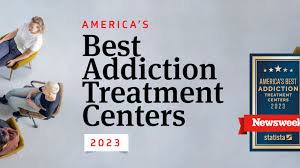The Importance of Addiction Treatment
Dealing with addiction can be a challenging and complex journey for individuals and their loved ones. Addiction is a chronic disease that affects the brain’s reward, motivation, and memory functions. It can lead to harmful behaviors, health issues, and strained relationships.
Types of Addiction Treatment
There are various approaches to addiction treatment, tailored to meet the unique needs of each individual. Some common types of addiction treatment include:
- Detoxification: The first step in addiction treatment is often detoxification, where the body rids itself of the substance. This process can be medically supervised to manage withdrawal symptoms.
- Therapy: Counseling and therapy sessions help individuals understand the root causes of their addiction, develop coping mechanisms, and learn healthier ways to manage stress and emotions.
- Medication-Assisted Treatment (MAT): Some addictions can be treated with medications that help reduce cravings and withdrawal symptoms, making it easier for individuals to focus on recovery.
- Support Groups: Programs like Alcoholics Anonymous (AA) or Narcotics Anonymous (NA) provide peer support and a sense of community for individuals in recovery.
The Recovery Process
Recovery from addiction is a lifelong journey that requires commitment, support, and ongoing effort. It’s important for individuals in recovery to have a strong support system that includes family, friends, therapists, and healthcare professionals.
Seeking Help
If you or someone you know is struggling with addiction, it’s essential to seek help as soon as possible. The earlier treatment begins, the better the chances of successful recovery. Remember that addiction is a treatable condition, and with the right support and resources, it is possible to overcome its challenges.
Contact a healthcare provider or addiction specialist to discuss treatment options and create a personalized plan for recovery.
7 Essential Tips for Successful Addiction Recovery
- Seek professional help from addiction specialists or counselors.
- Join a support group to connect with others going through similar struggles.
- Develop a strong support system of family and friends who can provide encouragement.
- Practice self-care activities such as exercise, meditation, and hobbies to reduce stress.
- Avoid triggers and environments that may lead to relapse.
- Follow a structured treatment plan recommended by healthcare professionals.
- Stay committed to the recovery process and be patient with yourself.
Seek professional help from addiction specialists or counselors.
Seeking professional help from addiction specialists or counselors is a crucial step in the journey to recovery from addiction. These trained professionals have the knowledge and experience to provide personalized support and guidance tailored to your specific needs. They can offer therapeutic interventions, evidence-based treatments, and compassionate care to help you address the underlying causes of your addiction and develop effective strategies for long-term sobriety. By reaching out to addiction specialists or counselors, you are taking a proactive step towards reclaiming control of your life and building a healthier, more fulfilling future.
Join a support group to connect with others going through similar struggles.
Joining a support group can be a valuable step in addiction treatment, as it provides an opportunity to connect with others who are experiencing similar challenges and struggles. Being part of a support group can offer a sense of community, understanding, and empathy that is crucial in the recovery process. Sharing experiences, receiving encouragement, and learning from others’ journeys can help individuals feel less alone and more motivated to stay committed to their recovery goals. Support groups create a safe space where individuals can express themselves openly, receive guidance, and build meaningful connections that contribute to their overall well-being and success in overcoming addiction.
Develop a strong support system of family and friends who can provide encouragement.
Developing a strong support system of family and friends who can provide encouragement is a crucial tip in addiction treatment. Having a network of loved ones who offer understanding, empathy, and motivation can make a significant difference in an individual’s recovery journey. These supportive relationships can provide emotional support during challenging times, celebrate milestones and achievements, and help create a sense of belonging and connection that is essential for maintaining sobriety. By surrounding oneself with positive influences and a caring community, individuals in addiction treatment can feel empowered and motivated to overcome obstacles and stay focused on their path to recovery.
Practice self-care activities such as exercise, meditation, and hobbies to reduce stress.
Engaging in self-care activities such as exercise, meditation, and hobbies can play a crucial role in addiction treatment by helping individuals reduce stress levels. These practices not only promote physical well-being but also contribute to mental and emotional balance. Exercise releases endorphins that act as natural mood lifters, while meditation fosters mindfulness and relaxation. Pursuing hobbies provides a healthy outlet for creativity and enjoyment, distracting from cravings and negative thoughts. By incorporating these self-care activities into their routine, individuals undergoing addiction treatment can better manage stress, improve overall well-being, and support their journey to recovery.
Avoid triggers and environments that may lead to relapse.
It is crucial for individuals undergoing addiction treatment to avoid triggers and environments that may increase the risk of relapse. By steering clear of situations, places, or people associated with substance use, individuals can reduce the temptation and likelihood of returning to addictive behaviors. Creating a supportive and safe environment that fosters positive habits and healthy coping mechanisms is essential in maintaining long-term recovery success. Identifying and managing triggers effectively can play a significant role in preventing relapse and promoting sustained sobriety.
Follow a structured treatment plan recommended by healthcare professionals.
Following a structured treatment plan recommended by healthcare professionals is crucial for effective addiction treatment. These plans are carefully designed to address the specific needs and challenges of each individual, taking into account factors such as the type of addiction, severity of the condition, and personal circumstances. By adhering to a structured treatment plan, individuals can receive the appropriate interventions, therapies, and support necessary to aid their recovery journey. Healthcare professionals play a key role in monitoring progress, adjusting the treatment plan as needed, and providing guidance and encouragement along the way. Consistency and commitment to following the recommended plan can significantly increase the likelihood of successful outcomes in overcoming addiction.
Stay committed to the recovery process and be patient with yourself.
It is crucial to stay committed to the recovery process and practice patience with yourself during the journey of addiction treatment. Recovery takes time, effort, and dedication, and it is essential to understand that progress may not always be linear. There will be ups and downs along the way, but staying committed to your goals and being patient with yourself can help you navigate through challenges and setbacks. Remember that healing is a process, and with perseverance and self-compassion, you can achieve sustainable recovery and a healthier, fulfilling life.


